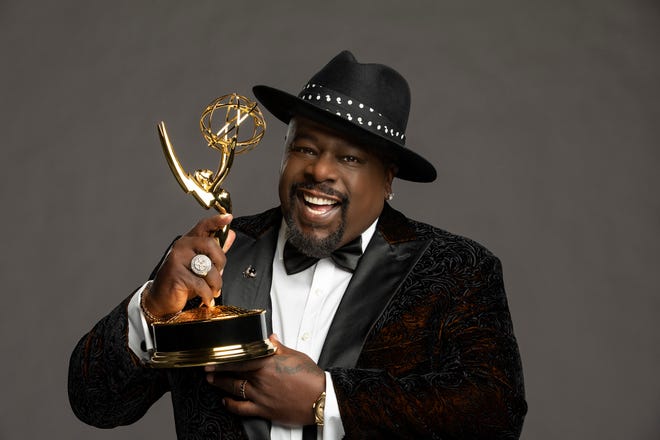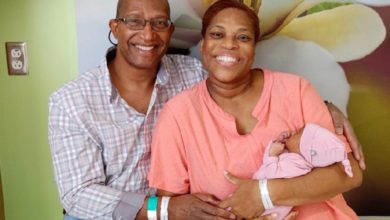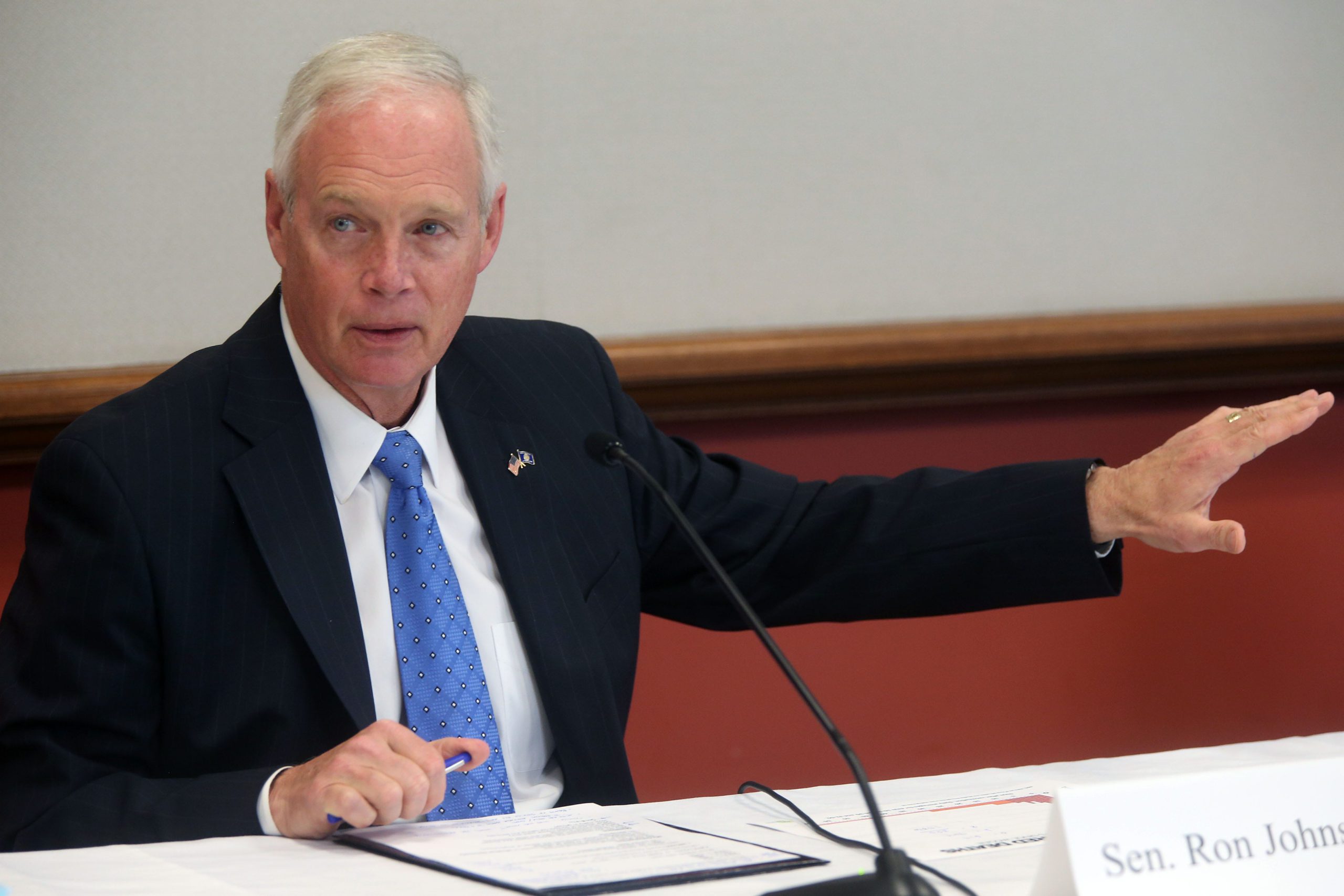

In her basement there is a box. And in that box, there is a book.
It’s a children’s book, with laminated pages and red plastic spirals holding it all together. Kersha Deibel drew the pictures and imagined this story at Central Elementary School in 1998. It was a year after “Spice World: The Movie,” and the book followed her attempt to form an all-girl band.
Deibel was in fourth grade. The character she created to represent herself, a short and talkative young girl, wanted to name the band Peace Girls.
She was outvoted.
Prayer requests, memes:Lebanon council texts reveal discussion behind abortion ban
'Fake Catholic' or devout Catholic? Why Joe Biden's Cincinnati visit divided the faithful
Deibel laughs as she pulls other memories from this box, which include a ragged “Saved by the Bell” sweatshirt, a driving contract her dad gave her when she turned 16 and a University of Cincinnati T-shirt.
“That’s me,” she says, pointing to a girl on her book’s cover. “The only brown person.”

Deibel smiles so big it must hurt her cheeks. Let her tell you a story.
It’s a story she’s comfortable telling, because she’s taken its pain and turned it into power. The story starts in seventh grade. Her class was finished, but the bell hadn’t rung yet. She was maybe 12 years old.
The teacher needed to fill time. So he went around the room, telling each student what he thought they would be when they grew up. Lawyer. Doctor. Olympic athlete. This is what he told the students. Until he got to Deibel.
She would be a maid, the teacher said.
Now 34, Deibel is the CEO of Planned Parenthood Southwest Ohio. And if you ask her about abortion, she will tell you about her opposition, about politics, about extremists, about legislative tactics and about a fighting spirit.
She calls it a battle; it sounds like war.
Outside the building where she is telling you this, there is an old man with a sign. The man has pamphlets, too. They describe what some believe to be the evils of abortion. Sometimes, the signs feature bloody pictures.
Deibel doesn’t know how often protestors demonstrate outside the building on Auburn Avenue in Cincinnati. It worries her dad, but it doesn’t faze her anymore. It’s part of the job.

From inside, she calls the protestors harmless. Then, she rephrases. Because they haven’t always been harmless. The same year she took this job in 2019, a Northern Kentucky man was arrested for threatening to blow up a Planned Parenthood center.
Police found an explosive device in his home.
Deibel is quick to point out most Americans support abortion on some level. But it doesn’t always feel that way. And as the Supreme Court considers two cases that could repeal or at least weaken Roe v. Wade, the landmark case granting abortion rights, it might not matter.
Because America is at war with abortion, and Deibel is on the front line.
Kersha Deibel's personal experiences strengthen her resolve
She didn’t tell her parents about the abortion.
Her dad wouldn't find out for years, until Deibel participated in a Planned Parenthood event where she discussed her abortion. Her dad still doesn’t know the circumstances surrounding it.
It was not his decision, Deibel says. She was in college in a bad relationship. Not that it matters, because her abortion is not her story. Not entirely. Her abortion is a fact in her story, maybe even a footnote. It was not the hardest decision she ever had to make.
For her, it was not a hard decision at all.

There is a narrative about abortion: For pregnant people, this narrative suggests abortions are heart-wrenching, emotionally draining decisions. And for some, they are. But for most patients, Deibel says, they aren’t.
When she first went to Planned Parenthood, she went for birth control. As soon as she walked in, it felt different from any other medical environment she’d experienced.
And not just because of the protestors.
The people inside made her feel seen. They made her feel like there were options besides straight and white. At UC, where she went to college, she saw drag queens for the first time. She saw other people who looked like her. And she wasn’t the only Black person in most rooms.
At a training conference this September, where Deibel was a guest speaker, she shared a photo of her parents. Her mom is white, and her dad is Black. They had her when they were teenagers.
At this training, Deibel introduced herself as fat, Black and queer. And then she told the story about seventh grade. A story that made her father drive 218 miles from where he attended school in Cincinnati to make sure the teacher apologized.
In many ways, this was a story about growing up. It was a story about being different.

Where she’s from, Deibel has always been different. When she lived there, her hometown of New Philadelphia was almost 97% white. Still, Deibel was the captain of the cheerleading team. And yet, she laughs when asked if she was popular in high school.
As a teenager, she wanted to move as far away from home as possible.
Home was a city in northeast Ohio. The kind of place you tell people about by referencing other cities nearby (it’s about 50 miles south of Akron). The kind of place best known for cornfields and high school football. Deibel’s earliest childhood memory was picking potatoes at her grandfather’s property.
Her brother had two goats.
When she was a junior in high school, Deibel kept getting questions about what she wanted to be when she grew up. The truth was she didn’t know. But that’s not much of an answer. So, she got on a computer and typed out some version of “I want to help people.”
Social work was what came back. It’s why she started volunteering at Planned Parenthood, and why she eventually got a job there counseling patients.
Even though Deibel doesn’t work directly with patients anymore, she thinks about them often. She can picture them, struggling to understand what it means now that Mason and Lebanon have outlawed abortions. She can picture them wondering what the Supreme Court will do in Texas, and what that will mean for Ohio.
She can picture these patients, because she sees herself in them.
Deibel met her wife at UC in Calhoun Hall. The two celebrated their second wedding anniversary in October, two days after Mason officials voted on an abortion ordinance. In the bathroom of their home, there is a sign that says: “Let that shit go.”
This is easier said than done. Especially now.

Shortly after Deibel became CEO in 2019, Planned Parenthood lost $3 million in funding because of changes in federal law. She almost cries, touching her chest, when she talks about closing locations in Springdale and Cincinnati’s West Side.
Neither of those locations performed abortions. And one had the highest percentage of Hispanic patients in the organization. It was close to a school, and Deibel says kids walked there at the end of the day. Some wanted condoms.
Others just wanted to hang out somewhere they felt safe.
After two local abortion bans, and more in discussion, there’s been an increase of calls to Planned Parenthood. There’s also been an increase in confusion, Deibel says.
Because she’s confused, too. She can’t believe she’s still fighting this fight, 105 years after Planned Parenthood was founded in New York.
Are you surprised? Or disappointed?
She responds quickly: “Pissed off.”
Dreaming big
Inside the box in her basement, the one her mom kept for all those years, is Deibel’s book.
Kim – aka Kersha Deibel – is pictured on the top right corner. It was Deibel’s story, but her own character did not take center stage. Two bandmates with blond hair and pale skin cover more than half the page.

Her dad remembers another picture. One she drew in third grade. One that was displayed on the school’s wall. Carson Trotter remembers this because there was one other Black child in his daughter’s class. And this child drew a picture of herself that looked like all the other kids.
In the picture, her skin was white.
Trotter saw this, and he remembers walking through the hallways until he found his daughter’s picture. He remembers feeling proud, because she had colored her skin brown.
He was proud, because even at such a young age, she knew who she was.
Even then, before Deibel knew what she wanted to do for a living, she dreamed of something bigger. She dreamed of equity, and she dreamed of peace. She doesn’t want to fight. But that doesn’t mean she won’t.
No matter what happens, she says, Planned Parenthood’s stance is clear.
“We’re not going anywhere,” she says.
Remember her story, where Deibel’s fictional band played a show in Cleveland (about 87 miles from New Philadelphia) at the Rock & Roll Hall of Fame. It was the group’s biggest concert yet, and the first song they sang was: “I love you the way you are.”
It was a hit.
Source link







